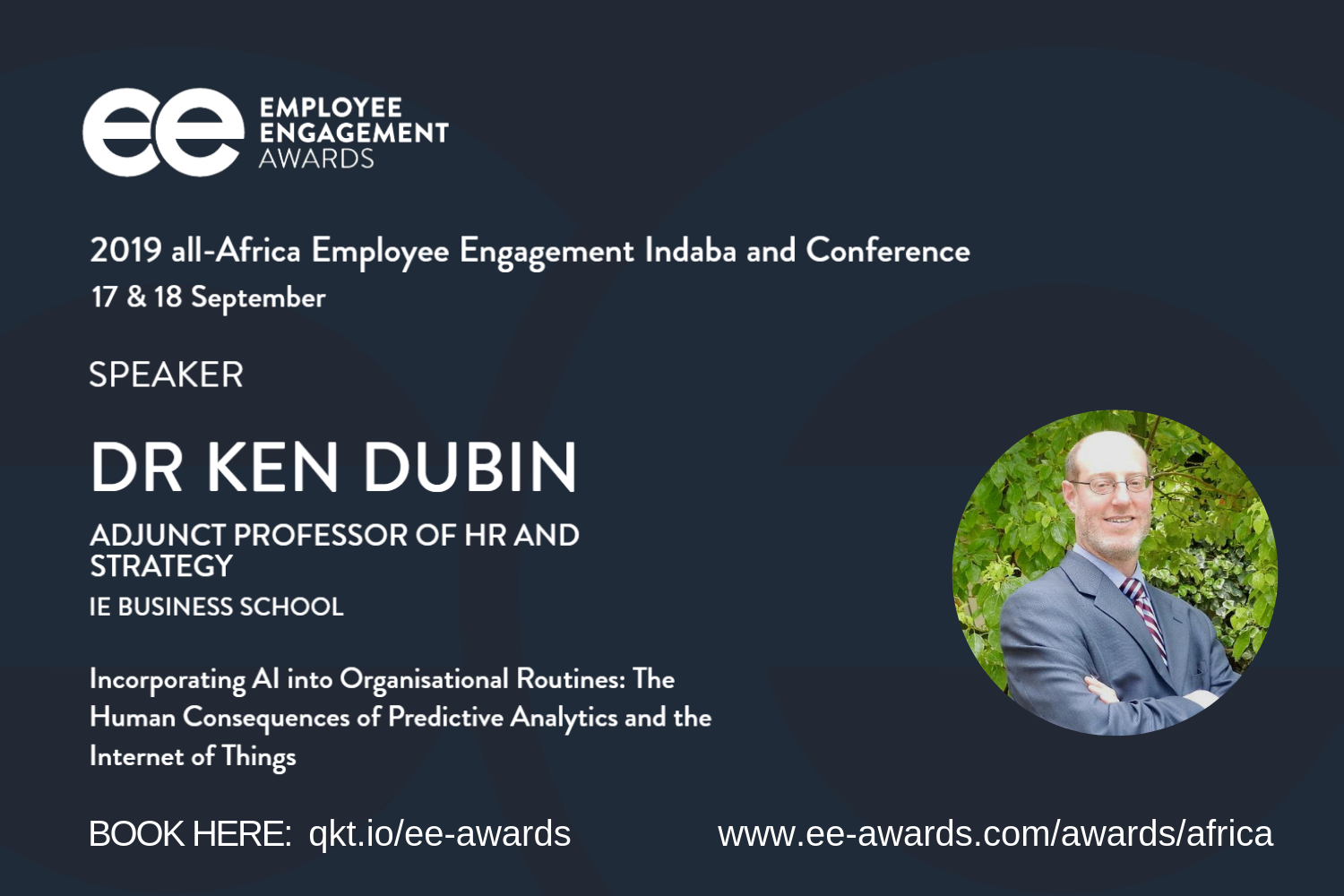Let us consider just a few examples from the Internet of Things. We can now track local and off-site worker locations in real-time, assess their emotional states and see how they interact with others. We can discover which employee actions add—or subtract—value with unprecedented speed and accuracy. We can bring to life the objects with which workers interact in order to rethink their routines and priorities.
These new technologies presage a revolution in performance management. On the one hand, they help us address endemic problems of under-utilised or misplaced effort: we know what we want workers to do or not to do, and technology can help us ensure that managerial objectives are not blocked by malfeasance or incompetence. On the other hand, these new technologies can provide data that allow us to rethink established routines and competitive strategies. Technology is rarely going to make the big decisions for us, but it can help us to make better decisions, to identify new opportunities, and to rethink radically the organization and focus of work.
Thus, in ways, both large and small, these new technologies offer the potential for a quantum leap in productivity (improving the “how”) and competitiveness (transforming the “what”). And because the Internet of Things massively increases our capacity to monitor and control, many managers may be tempted to leverage these new technologies to increase their unilateral control over the workplace. This temptation should be avoided at all costs.
“If we want to compete more effectively, we first need to figure out what to do. This is about the hardest challenge leaders face, and technology is not going to make it go away”.
Even where the objective is simply increasing productivity through control, implementation is rarely straightforward. Data protection rules and resistance to monitoring from unions and rank-and-file workers can complicate the implementation of monitoring technologies. At a minimum, managers should be working to build consensus—or at least consent—to such technologies in order maintain morale.
Much more problematic is the use of such technologies when we don’t know what we really want from them. We constantly make choices regarding strategies and their operationalization in the face of pervasive uncertainty about both the external environment and the organizational implications of our choices. As a result, we are almost always unsure about what the right thing to do really is. Technology will give us more data to help us make choices, but it is rarely going to make the big choices for us.
Given that the “right” things to do are almost always somewhat unknown, frequent conversations about “the what, the how and the why” remain one of the most valuable managerial tools.
Such collective reflection serves various purposes:
- Promoting a culture of searching for opportunities and risks
- Building a consensus about what should be done, creating a culture of shared goals
- Encouraging self-monitoring within teams
- Providing managers with frequent opportunities to evaluate performance, identify individual and collective problems and focus solutions
If new technologies open up a new world of possibilities, then gathering insights and building consensus regarding the paths to be pursued is essential to our success. In sum, if we want to realize the full potential offered by these transformative technologies, we must be better peoplemanagers than ever.
Dr Ken Dubin is speaking at the all-Africa Employee Engagement Conference on 18 September, sponsored by IE Business School. In June, the IE Global Online MBA was rated No1 in the world by QS 2019 ranking.
Find out more about all our speakers HERE and be sure to buy your seat HERE.



